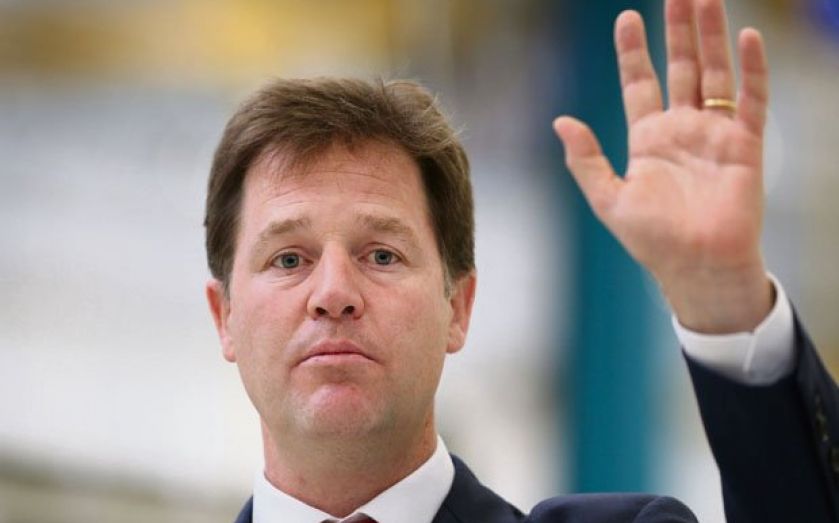Lib Dems are confused on economic freedom: No wonder voters aren’t impressed

THE ORANGE Book, written by a group of Liberal Democrat thinkers and politicians in 2004, had a clear message for a party often criticised for inconsistency. It articulated a desire for the Lib Dems to embrace economic liberalism and apply market solutions to a range of challenges, including in healthcare, environmental policy, and pensions. It suggested that truly authentic liberalism must be four-cornered: inclusive of political, social, personal and economic liberalism. Sadly, at the Lib Dem conference in Glasgow, it’s clear the party remains confused about its attitude to economic freedom.
On Sunday, I took part in a panel to mark the tenth anniversary of the book. On one side, the Lib Dem MP Jeremy Browne argued passionately that the social liberal advances of the 1960s and the economic policies of the 1980s did not mark one victory each for left and right. Rather, he claimed they were both decisive victories for liberalism. Liberal economics was achieving great advances worldwide, Browne said, and the Lib Dems needed to do more to show they understood and embraced dynamic trends in the global economy.
On the other side sat party president Tim Farron. He claimed that many 1980s reforms were not free market at all, but about installing private monopolies in place of public ones. A later speaker naturally asked why, if monopolies are the problem, Lib Dems were so defensive of the NHS, state provision of schools and the BBC. No answer was forthcoming.
It would be generous to say these disagreements show the Lib Dems are ideologically uncertain. The problem for the party is that such divisions don’t just manifest themselves in contradictory policies, but also in the electorate’s complete lack of understanding of what the Lib Dems actually stand for. Since the party cannot agree on many economic issues, it ends up defining itself by what the other parties are saying. This can be seen in the essential message the Lib Dems want to get across at this conference: we’re fairer than the Conservatives but more fiscally competent than Labour.
This attempted triangulation is more difficult when you’ve been a party of government. It’s also pretty uninspiring. If you are not seen to stand for anything from an economic perspective, is it any surprise that people aren’t rushing to man the barricades for your party?
Suppose a set of important economic questions were put to each of the political parties. When would a tax on the rich cease to be fair and instead be punitive? When would it be necessary or desirable to cut public spending faster and deeper? How active should the state be in trying to alter the economy through industrial or regional policy? No party would have a purist approach, but Labour and the Conservatives have a fairly predictable gut instinct – the electorate knows where the soul of each party lies. The same simply cannot be said of the Lib Dems.
This is a shame. With Ukip pulling in a more interventionist direction, Labour abandoning its commitment to liberal economics almost entirely, and the post-modernisation Conservatives always so sensitive to articulating any sort of vision, there is space for an authentic economically liberal party: from issues like tax right through to immigration.
Unfortunately, rather than occupy this space, the Lib Dems are muddled. And if you’re unclear whether you want higher or lower taxes, more or less state spending, and more or fewer central government diktats, you can bet your life the electorate won’t know either.